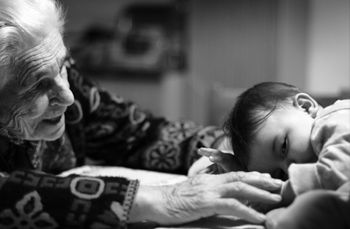Recognizing inherited traumas is possible, but it requires paying close attention to both body and mind. If you have unexplained memories or body sensations, or you recall things like they are memories without ever having actually experienced them, you may have inherited trauma.
Sometimes inherited trauma can work its way into our biology in the form of genetic pain and suffering which gets passed on. Experiences may rewrite DNA, sending signals to the next generation to be aware of a particular threat in the environment. However, it may also be entirely psychological, with no genetic component, which is observed when parents are not able to control their emotional reactions to stressful events which may cause the child to feel unsafe.
Here are some symptoms of trauma which can also be past down to future generations:
Difficulty Concentrating
You might find it hard to focus on tasks in front of you, or even follow the plot of a movie. This may hamper relationships, work and your social life.
Insomnia
You might also experience bouts of insomnia or nightmares. Getting to sleep might be difficult if you are thinking about your trauma.
Racing Heart
Those with inherited traumas may experience racing heart syndrome. Because of the intensity of the traumatic experience, the brain changes the heart rate to prepare the body for escaping danger, even when there is no direct threat.
Feeling Sad And Hopeless
Sadness and hopelessness are other common symptoms that you might experience if you have inherited trauma. It’s hard to feel good about life when threats seem overwhelming.
Feeling Numb Or Disconnected
Lastly, you may feel numb or disconnected. This is a way for your brain to protect you against the direct experience of the trauma. If it is too painful, you’ll feel cut off from your fears, and the rest of the world.

